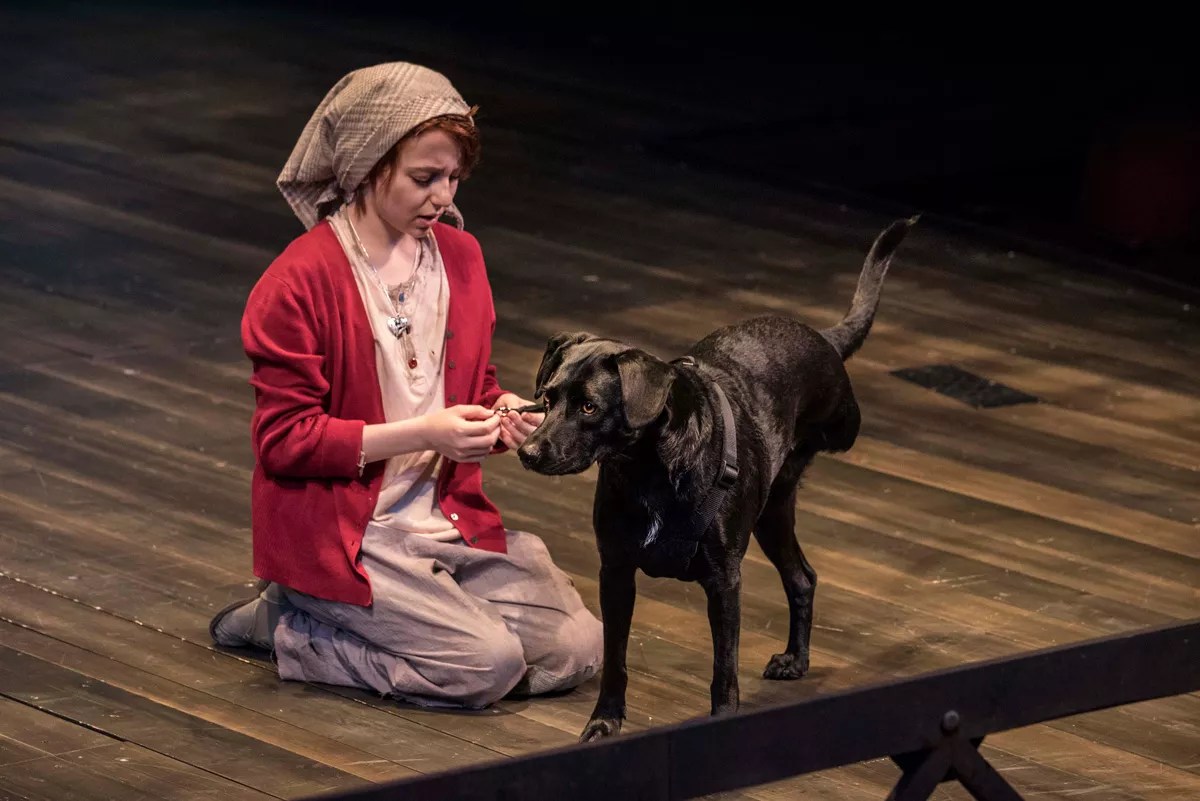
Michael Ensminger

Audio By Carbonatix
Phamaly is the first theater company in the nation whose actors all have some kind of physical ailment. A disabled person is obviously far more than his or her disability, and yet disability does shape a life in myriad ways. The brilliance of renowned neurologist Oliver Sacks lies not only in his scientific understanding of his clients’ problems, but in the empathetic and non-intrusive way he describes their inner reality, the pathways many find through their afflictions and into vibrant creative lives. In one of his essays, Sacks talks about an artist who lost his sense of color after a car accident; after a long period of grief and loss, he began making art again, creating exquisite works in black, white and dozens of subtle grays.
For the artists working with Phamaly, which is currently mounting the musical Annie, the company is a lifeline…and attending one of the company’s productions is a unique experience. You can see the joy in the cast members’ bodies and faces as they perform, the ways in which they surmount their disabilities, ignore them or openly use them to create intriguing new interpretations: the two men in wheelchairs who become New York City taxis; the woman gracefully waving as she rises on a platform for a radiant solo, while you slowly realize that much of her left arm is missing; the wheelchair-bound child able to happily kick along with a leg-kicking chorus of youngsters after being carefully lifted onto a waiting lap – a moving illustration of the young orphans’ love and caring for each other.
Regan Linton returned to Denver as Phamaly’s artistic director last year, after earning a master’s degree in fine arts. She discovered that the company had incurred a threatening deficit, and mounted a spring fundraising push that raised the $100,000 needed to stay in business. She and Steve Wilson, who served as artistic director for fourteen years, bring their combined wisdom and experience to co-directing Annie. Linton, who was paralyzed in a car accident while still in college, has been a radiant on-stage presence with the company in the past; she’s also exploring analytic ideas about the role of the disabled in theater. Wilson knows to his bones what directing disabled actors entails: the difficulties many face, the need to work without sentimentality or condescension, and to treat his actors as the artists they are.
So here’s Maria Ciobanu as Annie, lively, spunky and cheerful, though never obnoxiously so, working with a wonderful group of children: some limping, some wheelchair-bound, others leaping around the stage – and among them young Moira McConnell, for whom the word “irrepressible” might have been invented. Ashley Kelashian is the most powerfully evil Miss Hannigan imaginable; when she sings the loathing-filled “Little Girls,” she evokes the image of the tentacled Sea Witch in The Little Mermaid, crunching terrified shrimp. Then there are Lyndsay Palmer and Stephen Hahn as the shameful Mudges, attempting to impersonate Annie’s real parents so that they can get their hands on Daddy Warbucks’s certified check, and dignified Stewart Tucker Lundy as FDR, with gentle Lucy Roucis as Eleanor. Leonard Barrett brings warmth and charm – not to mention a magnificent voice – to the role of Warbucks; his charisma is matched by lovely Jenna Bainbridge as the aptly named Grace. And let’s not forget the two canine stars: blind Sonny and three-legged lab mix Daisy.
Trent Hines directs an admirable orchestra, lush with strings. Reading the program later, I noticed the viola was played by teenager Leslie Wilburn, the fiddler in Phamaly’s Fiddler on the Roof four years ago. According to their bios, many of the young cast members play instruments, and that makes sense, given the primacy of music in healing. At one point, Sacks himself suffered damage to his leg that made it feel like an alien object, insensate and dead, threatening not only his mobility, but his very sense of self. When the cast was finally removed, he realized he’d forgotten how to walk. It was Mendelssohn’s violin concerto that brought him back to himself and restored his sense of rhythm and movement.
I doubt any of this would surprise the folks at Phamaly, who figured out long ago that – at least for them – life and art are inseparable.
Annie, presented by Phamaly through August 6, Stage Theatre, Denver Performing Arts Complex, 800-641-1222, phamaly.org.